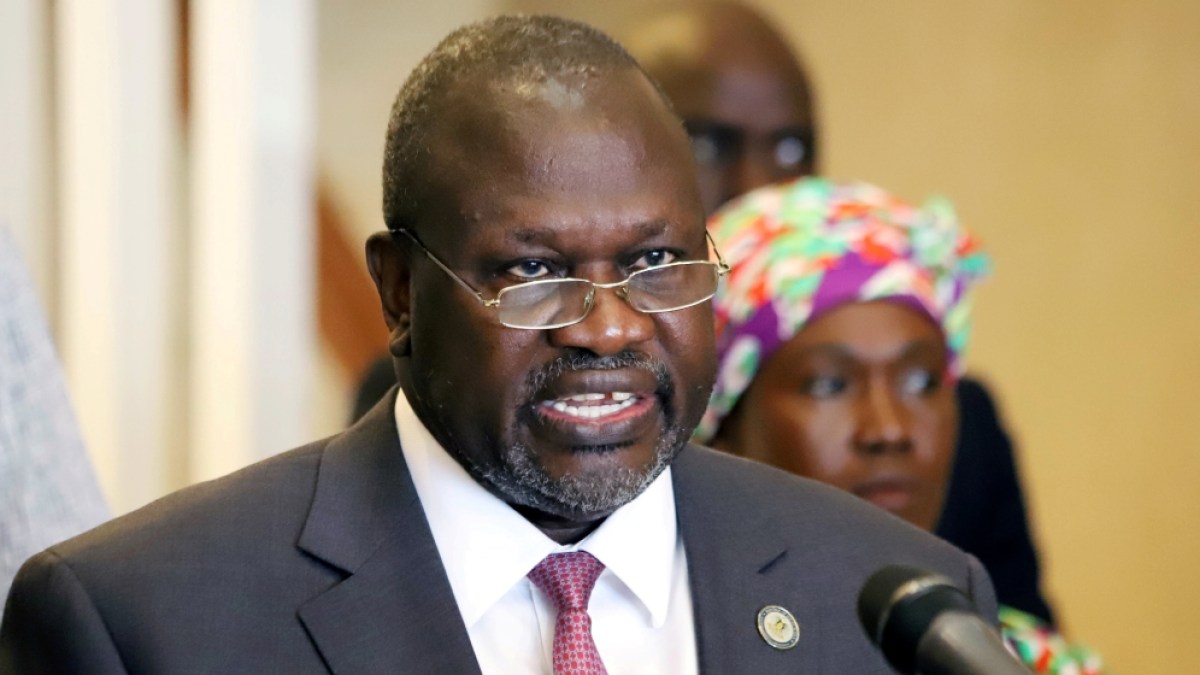On a humid, late afternoon in November, Edith sits giggling loudly and bantering with two older members of her team during a lull between heavy rain showers. They watch as younger staff members dodge puddles and sweat through a daily aerobics routine in the muddy courtyard.
As energetic pop music blares across the compound made up of three single- and double-storey buildings, seven-year-old Diego, who has cerebral palsy, heads up a concrete ramp towards a therapy room. His wrists twisted, he crawls forward slowly until Edith spots him.
“Diego, my boy!” the 49-year-old calls out with a wide grin.
She runs over to him, her loose dress billowing as she scoops him up and swings him quickly onto her hip. He gives her a high five, and the two laugh before turning their attention to the workout.
The warmth and affection between Edith and her staff and the children at the orphanage make the place feel like it belongs to a very large family.
Edith’s own journey as a disability rights figure in Uganda began in 2000 with the birth of her first child, Derrick, in Jinja.
When Derrick was two days old, he turned yellow and cried excessively. So Edith and her husband, Richard, took him to a hospital where he was misdiagnosed with malaria. For two weeks, their son suffered convulsions, and upon seeing another doctor, he was found to have complications with his spinal cord after contracting meningitis.
 Witch doctors like Robert Apedu in Soroti District provide 77 percent of health services in rural areas. They offer a more convenient alternative to health facilities and medicines found in cities [Christopher Hopkins/Al Jazeera]
Witch doctors like Robert Apedu in Soroti District provide 77 percent of health services in rural areas. They offer a more convenient alternative to health facilities and medicines found in cities [Christopher Hopkins/Al Jazeera]“When he made three months, this is when I realised that my son was not growing as a normal child. He had poor head control. He had a curved spinal cord. He was very floppy,” Edith recalls while sitting in her office. Its walls are adorned with certificates of appreciation and merit, and a portrait of President Yoweri Museveni hangs above the door.
As she looks out a window onto a playground full of children, Edith recalls how she and Richard struggled to get information about their son’s condition and were ostracised by their friends and family who were fearful of them and Derrick.
“We started coming into the hospital, in and out. Home, hospital, home, hospital. And with his situation, especially with convulsions, people were like, ‘He has got epilepsy. He has demons.’ And this is where I was rejected by the community,” she says.
“They were like, ‘She gave birth to a demon-possessed child.’”
![Omalera, Soroti District, Uganda. Local Witch doctor Robert Apedu treats Noah Oyara,17. Noah has no use of his legs and also lives with hydrocephalus. Robert treated these conditions by rubbing a paste of water and plant matter into Noahs skin. While he is well known in the area as a witch doctor, he understands the negative connotation surrounding his profession so like many others he refers to himself as a 'traditional healer or herbalist'. [Christopher Hopkins/Al Jazeera]](https://www.aljazeera.com/wp-content/uploads/2025/05/HOP7760-1748336579.jpg?w=770) In the village of Omalera, Robert rubs a paste of plant matter and water onto the skin of Noah Oyara, 17, who has no use of his legs and also lives with hydrocephalus. Due to negative connotations surrounding his profession, Robert refers to himself as a 'traditional healer' or 'herbalist' [Christopher Hopkins/Al Jazeera]
In the village of Omalera, Robert rubs a paste of plant matter and water onto the skin of Noah Oyara, 17, who has no use of his legs and also lives with hydrocephalus. Due to negative connotations surrounding his profession, Robert refers to himself as a 'traditional healer' or 'herbalist' [Christopher Hopkins/Al Jazeera]Historically and until today, education about disabilities has not been promoted through government-run schools or local clinics, leading many Ugandans to resort to traditional healing. Without a diagnosis and feeling helpless, Edith succumbed to social pressure and took her son to traditional healers.
“I tried to take him to different witch doctors. They were cutting him all over the body, smearing him with their herbs, washing him with blood of the chicken, the blood of the goat. They could take us in at night to shower us with the blood of the chicken, but still, Derrick didn't change,” she recalls. “It was just worsening.”
But then an elderly couple at her church encouraged her to return to the hospital and supported her family. So Edith returned with Derrick to the hospital. After 12 months, he was diagnosed with permanent disability. The prolonged lack of treatment for meningitis had led to severe brain damage and cerebral palsy, leaving him nonverbal and unable to walk or feed himself for the rest of his life.

 2 months ago
72
2 months ago
72

















































